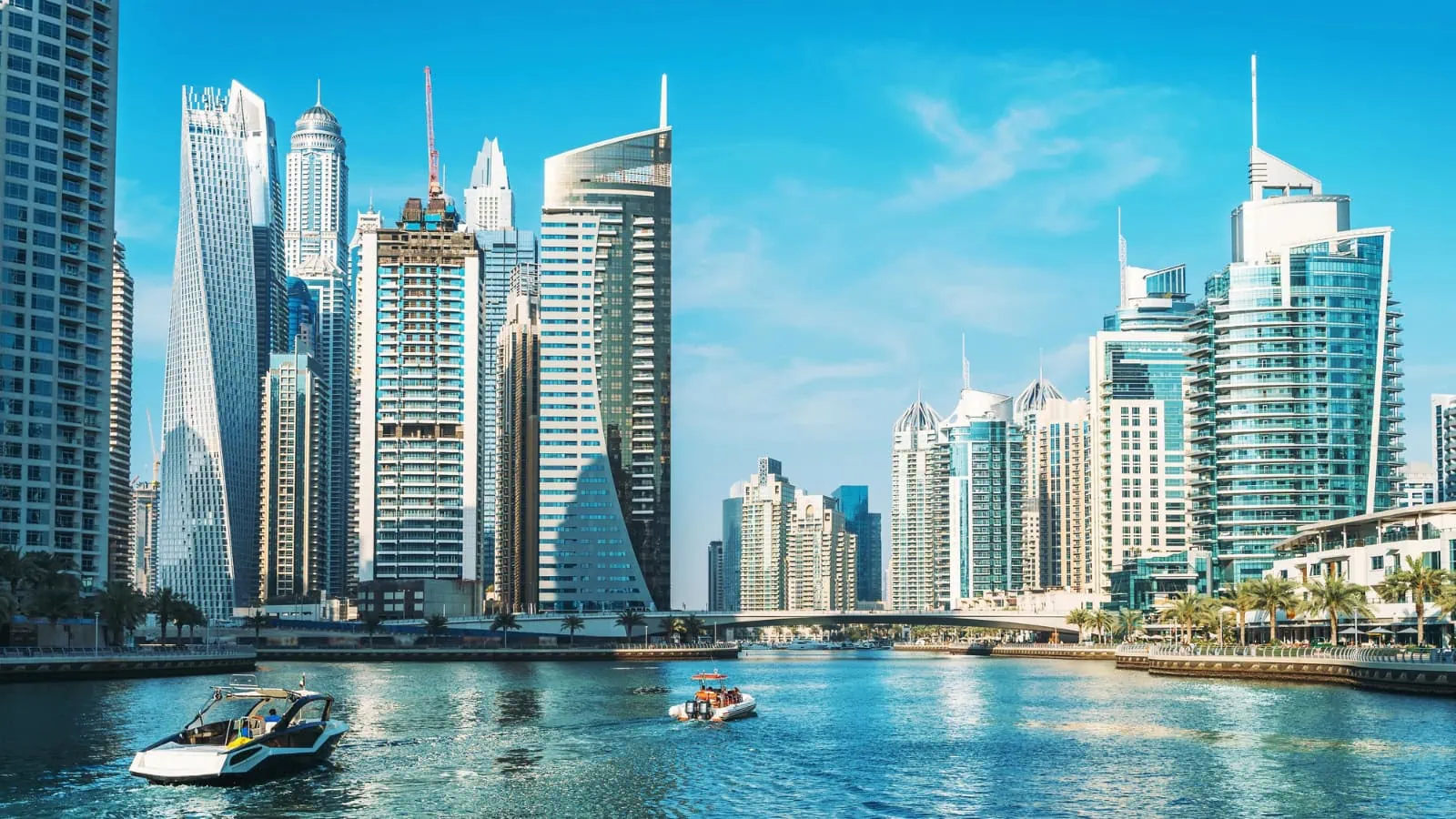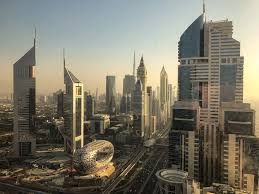Now Reading: 7 Impactful Corporate Governance Enhancements Affecting Investors in 2025
-
01
7 Impactful Corporate Governance Enhancements Affecting Investors in 2025
7 Impactful Corporate Governance Enhancements Affecting Investors in 2025

Table of Contents
Corporate Governance Enhancements: Dubai’s real estate market, a global leader with 6-8% rental yields and no capital gains tax, thrives in 2025 with AED 761 billion ($207.2 billion) in 2024 transactions, despite a forecasted 15% price decline per Fitch Ratings. Corporate governance enhancements, driven by the Dubai Land Department (DLD), UAE Securities and Commodities Authority (SCA), and new regulations like Cabinet Decision No. 35 of 2025, bolster investor confidence in this AED 761 billion sector.
These reforms align with the Dubai Economic Agenda D33 and Real Estate Strategy 2033, emphasizing transparency, sustainability, and compliance. This guide, crafted in clear, SEO-friendly language with an engaging tone, outlines seven impactful corporate governance enhancements affecting U.S. investors, supported by data, legal frameworks, and risk analysis.
7 Impactful Corporate Governance Enhancements
1. Strengthened Board Diversity and Independence
The SCA’s 2024 Corporate Governance Guide mandates that real estate firms listed on the Dubai Financial Market (DFM) include at least 30% independent directors and 20% women on boards by Q1 2025. This aligns with international standards, per STA Law Firm.
- Impact: Diverse boards reduce conflicts of interest, enhancing decision-making for firms like Emaar Properties, boosting investor trust and 6-8% yields in Downtown Dubai.
- Investor Benefit: U.S. investors gain confidence in firms with objective oversight, supporting 7-9% price growth in prime areas. Monitor board compositions via DFM.
- Example: Emaar’s board, with 33% independent directors, approves a AED 2 billion Dubai Marina project, driving $54,452 share value growth for a $544,518 stake.
- Source: SCA
2. Mandatory ESG Reporting for Real Estate Firms

Cabinet Decision No. 35 of 2025 requires real estate firms with assets over AED 500 million to publish Environmental, Social, and Governance (ESG) reports, integrating sustainability metrics like carbon emissions and labor practices, per Deloitte.
- Impact: ESG compliance attracts 35% more eco-conscious investors, per Savills, increasing demand for green properties in Dubai Sustainable City by 5-7%.
- Investor Benefit: U.S. investors see 6-8% yields in sustainable projects, aligning with Net-Zero 2050 goals. Invest via Property Finder.
- Example: A $680,647 Dubai Sustainable City villa yields $47,645 annually, with 10% ESG-driven rent premiums, adding $4,764.
- Source: FTA
3. Enhanced Financial Transparency

The DLD’s Real Estate Evolution Space Initiative (REES), launched in May 2024, mandates real-time financial disclosures for developers, synced with blockchain ledgers, per Global Government Fintech. This reduces fraud by 80%, per Ledger Insights.
- Impact: Transparent reporting boosts 44% transaction growth ($18.2 billion in May 2025), supporting 6-8% yields in JVC, per Betterhomes.
- Investor Benefit: U.S. investors access reliable data for AED 600,000 JVC units, minimizing risk. Verify via Dubai REST.
- Example: A $163,355 JVC apartment purchase avoids $10,000 fraud losses, securing $11,435 annual rent.
- Source: DLD
4. Stricter Anti-Money Laundering (AML) Compliance
VARA and DLD’s 2025 AML regulations require real estate firms to implement KYC protocols for transactions above AED 100,000, with penalties up to AED 5 million for non-compliance, per Al Tamimi.
- Impact: AML measures enhance investor trust, driving 110,000 new investors in 2024 (55% increase), per DLD, and 7-8% yields in Palm Jumeirah.
- Investor Benefit: U.S. investors benefit from secure transactions in AED 2 million properties, supporting Golden Visa eligibility. Use Unique Properties.
- Example: A $544,518 Palm Jumeirah unit purchase complies with KYC, avoiding $50,000 fines, yielding $38,116 annually.
- Source: VARA
5. Audit Committee Oversight for SMEs
The SCA mandates that small and medium-sized real estate enterprises (SMEs) with revenues above AED 50 million establish audit committees by Q2 2025, ensuring compliance with IFRS, per STA Law Firm.
- Impact: Audit oversight reduces financial mismanagement by 70%, per PwC, supporting 6-7% yields in affordable areas like Dubai South.
- Investor Benefit: U.S. investors gain confidence in SME-managed properties (from AED 800,000), ideal for mid-tier portfolios. Consult Farahat & Co..
- Example: A $217,807 Dubai South unit yields $15,247, with audit-backed stability adding $2,178 to returns.
- Source: SCA
6. Stakeholder Engagement Mandates
The 2024 Corporate Governance Guide requires real estate firms to hold quarterly stakeholder meetings and publish investor feedback reports, fostering transparency, per Deloitte.
- Impact: Engagement drives 20% higher investor retention, per Knight Frank, boosting 6-8% yields in Business Bay commercial properties.
- Investor Benefit: U.S. investors influence project decisions, enhancing ROI in AED 1 million offices. Attend DFM investor forums.
- Example: A $272,259 Business Bay office yields $19,058, with stakeholder-driven amenities adding $1,905 to returns.
- Source: DFM
7. Technology-Driven Governance
The DLD’s PropTech Group, launched with Dubai Chambers in 2024, promotes AI and blockchain for governance, enabling real-time risk monitoring and predictive analytics, per Economy Middle East.
- Impact: Tech-driven governance cuts operational risks by 60%, per Emaar, supporting 7-9% price growth in Dubai Hills.
- Investor Benefit: U.S. investors leverage AI analytics for AED 1.2 million Dubai Hills villas, ensuring stable returns. Use Emaar.
- Example: A $326,710 Dubai Hills villa yields $22,870, with AI-optimized maintenance saving $3,267 annually.
- Source: DLD
Legal Considerations for U.S. Expats
- UAE Tax Framework:
- Corporate Tax: 9% on taxable income above AED 375,000, with exemptions for Qualifying Free Zone Persons (QFZPs) or Small Business Relief (revenue below AED 3 million). Residential rental income exempt.
- VAT: 5% on commercial transactions (e.g., developer fees), exempt for residential rents. Recoverable for VAT-registered firms.
- Compliance: Register for VAT if taxable supplies exceed AED 375,000 by March 31, 2025. File corporate tax returns by September 30, 2025. Penalties: AED 10,000 for late registration, AED 50,000 for non-compliance.
- U.S. Tax Framework:
- Reporting: Declare worldwide income under FATCA via Forms 8858, 1116, Schedule E. Income taxed at 10-37%, capital gains at 0-20%.
- Foreign Tax Credit (FTC): Offset U.S. tax with UAE corporate tax (not VAT).
- FEIE: Exclude USD 130,000 of earned income if resident in UAE for 330 days.
- Freehold Ownership: U.S. investors can own properties in freehold zones (e.g., Dubai Marina, JVC), registered with DLD.
- Golden Visa: AED 2 million investments qualify for 10-year residency.
- Transaction Fees: 4% DLD fee (split with seller), 2% agency fee, AED 540-4,200 registration fees.
Risks and Mitigation
- Oversupply: 210,000–250,000 units by 2026 may deepen price declines. Invest in prime areas like Palm Jumeirah for 7-9% growth.
- Compliance Costs: ESG and AML regulations may cost SMEs AED 50,000-100,000 annually. Engage Farahat & Co. for compliance.
- U.S. Tax Burden: IRS reporting reduces returns. Claim FTC and Schedule E deductions with U.S. tax advisors.
- Regulatory Shifts: Cabinet Decision No. 35 updates may alter compliance. Monitor SCA announcements.
- Technology Adoption: SMEs may lag in AI integration. Partner with PropTech firms via Dubai Chambers.
Step-by-Step Guide for U.S. Investors
- Research Governance Reforms: Study SCA and DLD regulations via STA Law Firm and FTA.
- Select Compliant Investments: Target properties from governance-strong firms like Emaar in Dubai Hills (from AED 1.2 million) via Property Finder.
- Verify Transparency: Check financial disclosures and ESG reports on Dubai REST or DFM.
- Ensure Compliance: Engage Farahat & Co. for VAT, AML, and corporate tax filings by Q1 2025.
- Leverage Technology: Use AI analytics on Emaar for investment decisions.
- Attend Stakeholder Events: Join DFM forums to influence projects, enhancing 6-8% yields.
- Monitor Returns: Aim for 6-10% yields and 7-9% appreciation by 2028, reinvesting in prime properties.
Conclusion
In 2025, Dubai’s real estate market leverages corporate governance enhancements like board diversity, ESG reporting, and blockchain transparency to drive investor confidence in a AED 761 billion sector. These reforms, aligned with D33 and Real Estate Strategy 2033, support 6-10% yields and 7-9% price growth despite a 15% correction forecast. U.S. investors can maximize returns by targeting compliant firms, using platforms like Property Finder, and mitigating risks with advisors like Farahat & Co., ensuring success in this dynamic market. watch more
READ more: Dubai Real Estate: 5 Powerful Insights Into REIT Tax Exemptions in 2025



















